
Dermatologists in London
Conveniently located in London’s medical district, Harley Street, The Dermatology Clinic London is a private clinic founded by Dr Daniel Glass, a leading UK consultant dermatologist with over 20 years of medical experience in the field of both adult and paediatric dermatology care.
Dr Glass’s team consists of award-winning skin specialists with a wealth of experience in treating skin, hair and nail problems. The clinic focuses on providing specialist & personalised care, in both medical and cosmetic dermatology for their patients.
Becoming a patient at our clinic in London will ensure that you receive the best dermatology treatment and care that the UK has to offer. Our dermatology clinicians endeavour to make your experience as comfortable and stress-free as possible.
We understand that skin conditions can have a huge impact on a person’s well-being, and we therefore, adopt a holistic approach to mitigate the levels of stress and anxiety during your patient journey with us. We believe that delivering personalised care is essential in the road to recovery and the management of skin conditions for our patients.
If you have a skin problem or something is causing you concern, our doctors, in many cases, will be able to quickly diagnose and identify the problem. In some patients, further investigation will be required, including skin biopsy, allergy tests, swabs and skin scraping tests together with blood tests before a diagnosis can be reached. From there our doctors will be able to tailor a personalised treatment plan that is best suited to your individual needs. Once your condition has been treated or is under control, you may visit our clinic for checkups to ensure that your skin condition is under control or, depending on the condition, has resolved entirely.
Patients can book an appointment directly with one of our dermatologists, but some people choose to visit The Dermatology Clinic London after getting a referral from their GP.
Our clinic frequently diagnoses and treats an extensive range of skin conditions. Common conditions we treat include acne, eczema, psoriasis & skin cancer.
Meet our team of Skin Specialists
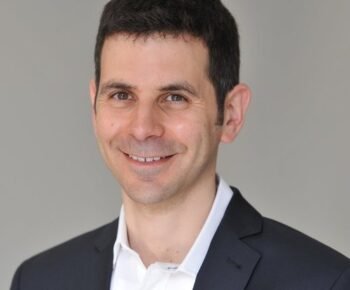
Dr. Dan Glass
Consultant Dermatologist
Specialized in acne, eczema and rashes, as well as skin cancer.

Dr Reina Wujanto
Consultant Dermatologist
Specialist in Dermatology, with an interest in contact allergy.
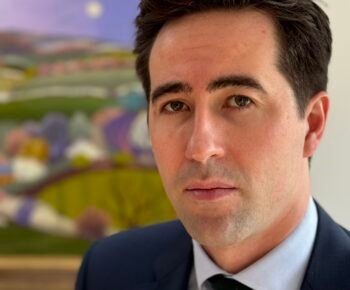
Dr Björn Thomas
Consultant Dermatologist
Specialised in Dermato-Oncology and holds a PhD in atopic eczema.

Mr Dan Marsh
Consultant Plastic Surgeon
Specialised in the surgical treatment of skin cancer, breast surgery and facial re-construction.

Dr Alistair Robson
Consultant Dermatopathologist
Dermatopathologist with over with 15 years’ worth of experience in teaching and research.

Dr Reena Shah
Clinical Psychologist
Expert in Psychodermatology, using psychological therapy to treat patients' skin disorders.
What is a Consultant Dermatologist?
A Consultant Dermatologist is a doctor who has undergone rigorous training in general medicine before specialising in the diagnosis and treatment of skin, hair and nail conditions. To become a Consultant Dermatologist, one must undergo many years of training. They focus almost entirely on the treatment and diagnosis of skin disease. Many Consultant Dermatologists including our clinicians are trained in paediatric dermatology, a subspecialty dealing with skin conditions in children.
Skin Cancer Treatment in London
Our Dermatologists are highly skilled in the diagnosis and treatment of all types of skin cancer. This includes both melanoma and non-melanoma cancers along with other rarer forms of skin cancer. We discuss all complex or advanced skin cancers in a multidisciplinary team, which is the gold standard of care. This allows us to discuss treatment plans for complicated skin cancer management with our histopathologist, plastic surgery and oncology colleagues as required.
Skin cancer is the most common type of cancer and is seen in up to 1 in 5 people.
The two most common types of skin cancer are basal cell carcinoma and squamous cell carcinoma. Melanoma are less common but over sixteen thousand are seen each year in the UK. Many skin cancers are caused by exposure to harmful UV light. Most skin cancers, if caught early are treated by simple surgery alone.
Medical & Cosmetic Dermatology Care
What is the difference between medical and cosmetic dermatology care? While there is some crossover, the distinction is easy to understand.
Cosmetic can be defined as relating to the restoration or improvement of appearance. All Dermatology has a cosmetic component.
Medical dermatology helps you overcome skin, hair and nail conditions that affect your health – at worst, cancerous moles and so forth.
Meanwhile, cosmetic dermatology or cosmetic beautification is where the only purpose is to alter one's appearance rather than deliver healthcare.
Common Conditions that we treat at our clinic
Our range of treatments available is highly comprehensive, and we can discuss your specific needs during your consultation.
Here are some of the most common skin conditions that are treated at our clinic.
Most moles are completely harmless. However, moles that appear suddenly, or that begin to feel uncomfortable causing itching, pain or even bleeding, can be of concern and it is important that they are assessed as soon as possible.
Acne is one of the most common skin diseases and affects almost all teenagers to some degree.
Acne is also increasingly common in even the most healthy of adults, particularly prevalent in women. Acne can have a significant impact on self-confidence and psychological health. It can also cause scarring of the skin.
It is therefore essential it is treated early. Acne requires highly individualised treatment, making speaking to a Dermatologist about it vital.
No matter your age or gender, alopecia can still create a difficult-to-manage condition. Alopecia itself can cause anxiety as a result of societal pressures. There are many different types of alopecia which can manifest as diffuse thinning of the hair or with patches of complete hair loss. Alopecia is often categorised into non-scarring and scarring types, it is essential to treat scarring alopecia quickly to minimise permanent hair loss. Non-scarring alopecia has the potential for regrowth.
From steroids taken orally or via injections, to specialist creams, topical therapies and phototherapy, we are experienced in working with clients to overcome this issue.
Pilar cysts are non-cancerous growths that arise from a hair follicle structure and can occur in any hair-bearing area.
Often inclined to run in the family, pilar cysts are not dangerous.
It is not always necessary to remove pilar cysts, but if they are large or symptomatic then they can be removed surgically, normally under local anaesthetic.
Skin tags are small, often pedunculated growths on the skin that can appear a little like lesions and warts. Frequently they never get bigger than a millimetre or two in size.
These can be removed via burning, freezing or cutting them away. Naturally, we will work with you during and after your consultancy to offer the approach with which you are most comfortable.
Finding The Best Dermatologist In London
London is a huge city, making finding the best dermatologist in London tough. However, our years of experience and patient-centred compassionate and pragmatic approach to the management of skin disease make the Dermatology Clinic London a sound choice for you. Our central London Harley Street location is easy to access.
Frequently Asked Questions
Dermatology is the sphere of medicine that concerns our skin, our hair and our nails.A consultant dermatologist is a specialist in this field of medicine who contracts privately with patients to provide bespoke services in pursuit of healing or improving health and appearance in all areas relating to the skin, hair and nails of the patient.
Private Dermatology care is a paid service and incurs a fee.
An initial consultation at our practice costs £275, offering a thorough insight into your condition and requirements before proceeding with the recommended course of care.
Depending on your needs, additional procedures can cost from £190 for a cortisone injection, through to £190 for basic cryotherapy and £800 or above for surgical procedures.
For a full list of our fees please click
No matter your age or gender, alopecia can still create a difficult-to-manage condition. Alopecia itself can cause anxiety as a result of societal pressures. There are many different types of alopecia which can manifest as diffuse thinning of the hair or with patches of complete hair loss. Alopecia is often categorised into non-scarring and scarring types, it is essential to treat scarring alopecia quickly to minimise permanent hair loss. Non-scarring alopecia has the potential for regrowth.
From steroids taken orally or via injections, to specialist creams, topical therapies and phototherapy, we are experienced in working with clients to overcome this issue.
Learn more about skin conditions

The Importance of Checking Your Moles
Protect yourself from melanoma with regular self-assessment. Learn the signs to look out for and when to see a dermatologist. Read more for essential insights.
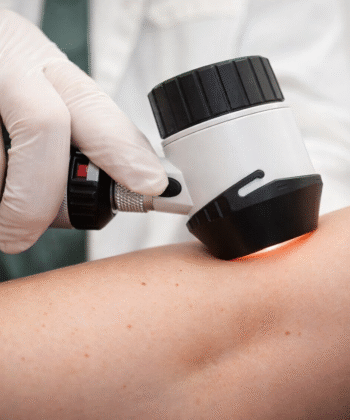
BCC vs SCC
A skin cancer diagnosis raises immediate questions. If you've been diagnosed with basal cell carcinoma (BCC) or squamous cell carcinoma (SCC), you need clear information about your condition and treatment options.

Melanoma and Ultraviolet Light: What’s the Link?
According to Cancer Research UK, around 85% of melanomas in the UK are caused by too much ultraviolet radiation. The number of people being diagnosed with this type of cancer has increased and is now the 5th most common cancer in the UK.
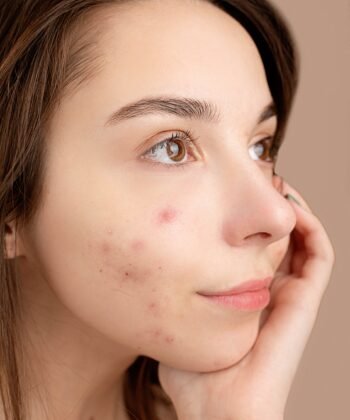
The Truth About Acne
Acne is a debilitating disease that affects over 18 million people in the UK. A lot of people say it’s a teenage issue that you can grow out of, but it affects many people right through to their adult life and can completely take over people’s lives.
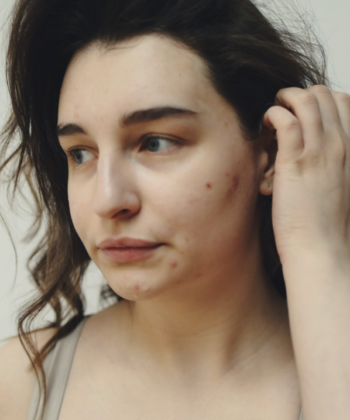
Pregnancy Acne: What Are the Causes?
Pregnancy acne, stemming from hormonal shifts, affects up to 43% of expectant mothers, often causing breakouts and discomfort. Learn about the causes, prevention tips, and expert solutions at The Dermatology Clinic London.
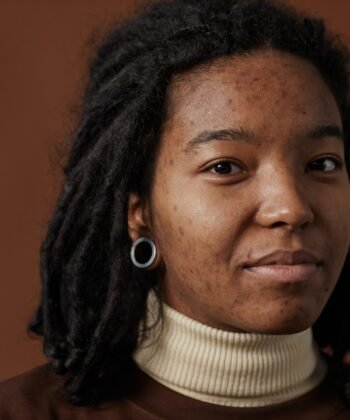
Acne in Teens and Young Adolescents
One of the reasons teenage acne flares is as a result of hormonal changes in the body that cause the glands under the skin to produce excess sebum. It is these hormones that play a major role in influencing how the sebaceous glands function.

Skin Allergies – Why they Happen and How to Take Care of Them
Allergies are the most common chronic disorder in the United Kingdom; it is estimated that around a quarter of brits will be affected by some kind of allergy during their lives, a number that is expected to increase exponentially going forward.
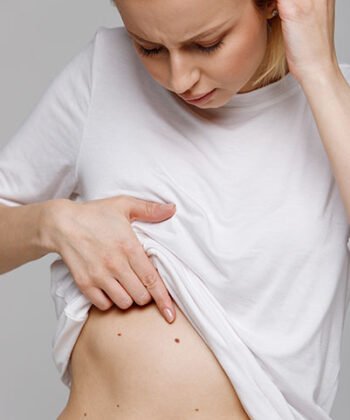
Why Does My Mole Itch?
Itching or pruritus is often a sign of dryness or irritation of the skin’s surface. As a result, our skin’s nerve endings, also known as pruriceptors, are stimulated.

The Impact of Diet on Acne: What You Eat Matters
Diet plays a critical factor in a person’s overall health and well-being. People with a healthy balanced diet tend to live longer and have a lower risk of developing serious health problems such as cardiovascular disease and type 2 diabetes.
What our patients say…
Dr Glass put me on a course of medication which was successful in treating this condition. I have now been happily discharged 🙂
Throughout my treatment, I found Dr Glass to be extremely conscientious, caring and thorough. He fully explained all the available treatment options to me and possible side effects. I felt I was properly informed.
He also explained to me that skin is very unpredictable and if I have a predisposition to skin allergies, then flare-ups could recur in the future. If this happens, I would have no hesitation in consulting with Dr Glass again, if need be. I would also have no hesitation in recommending him to others.
His knowledge, expertise and attention to detail, is not only reassuring but enables you to build trust and confidence going forward in whatever treatment path is required.
I have recommend him to family
and friends for diagnosis and treatment, as I believe Daniel is the leading consultant in his field for Northwest London.
When I saw Dr Glass in 2017, he diagnosed and treated my skin issue very swiftly. Within weeks I was looking well but mentally that boosted my confidence too.
I needed to see him again and I was not going anywhere else, as he was the right person to treat my skin condition again. Dr Glass once again diagnosed and treated my skin condition on a different issue very quickly and within 6-7 weeks, my skin feels new.
Thank you once again Dr Glass; I will not hesitate to recommend you to anyone seeking your services as I know they will be in the best care.











